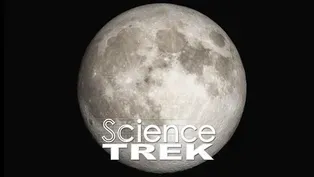
The Moon: Shrinking and Shaking
Clip: Special | 1m 6sVideo has Closed Captions
Why is the Moon shaking?
The Apollo astronauts left sensors to track moonquakes and they have discovered something interesting– the moon is shrinking and expanding. They also think they now understand why it is shaking.
Problems with Closed Captions? Closed Captioning Feedback
Problems with Closed Captions? Closed Captioning Feedback
Science Trek is a local public television program presented by IdahoPTV
Major Funding by the Laura Moore Cunningham Foundation and Idaho National Laboratory. Additional Funding by the Friends of Idaho Public Television and the Corporation for Public Broadcasting.

The Moon: Shrinking and Shaking
Clip: Special | 1m 6sVideo has Closed Captions
The Apollo astronauts left sensors to track moonquakes and they have discovered something interesting– the moon is shrinking and expanding. They also think they now understand why it is shaking.
Problems with Closed Captions? Closed Captioning Feedback
How to Watch Science Trek
Science Trek is available to stream on pbs.org and the free PBS App, available on iPhone, Apple TV, Android TV, Android smartphones, Amazon Fire TV, Amazon Fire Tablet, Roku, Samsung Smart TV, and Vizio.

Science Trek
Science Trek is a place where parents, kids, and educators can watch short, educational videos on a variety of science topics. Every Monday Science Trek releases a new video that introduces children to math, science, technology, engineering, and math (STEM) career potentials in a fun, informative way.Providing Support for PBS.org
Learn Moreabout PBS online sponsorshipSupport for PBS provided by:
Science Trek is a local public television program presented by IdahoPTV
Major Funding by the Laura Moore Cunningham Foundation and Idaho National Laboratory. Additional Funding by the Friends of Idaho Public Television and the Corporation for Public Broadcasting.












